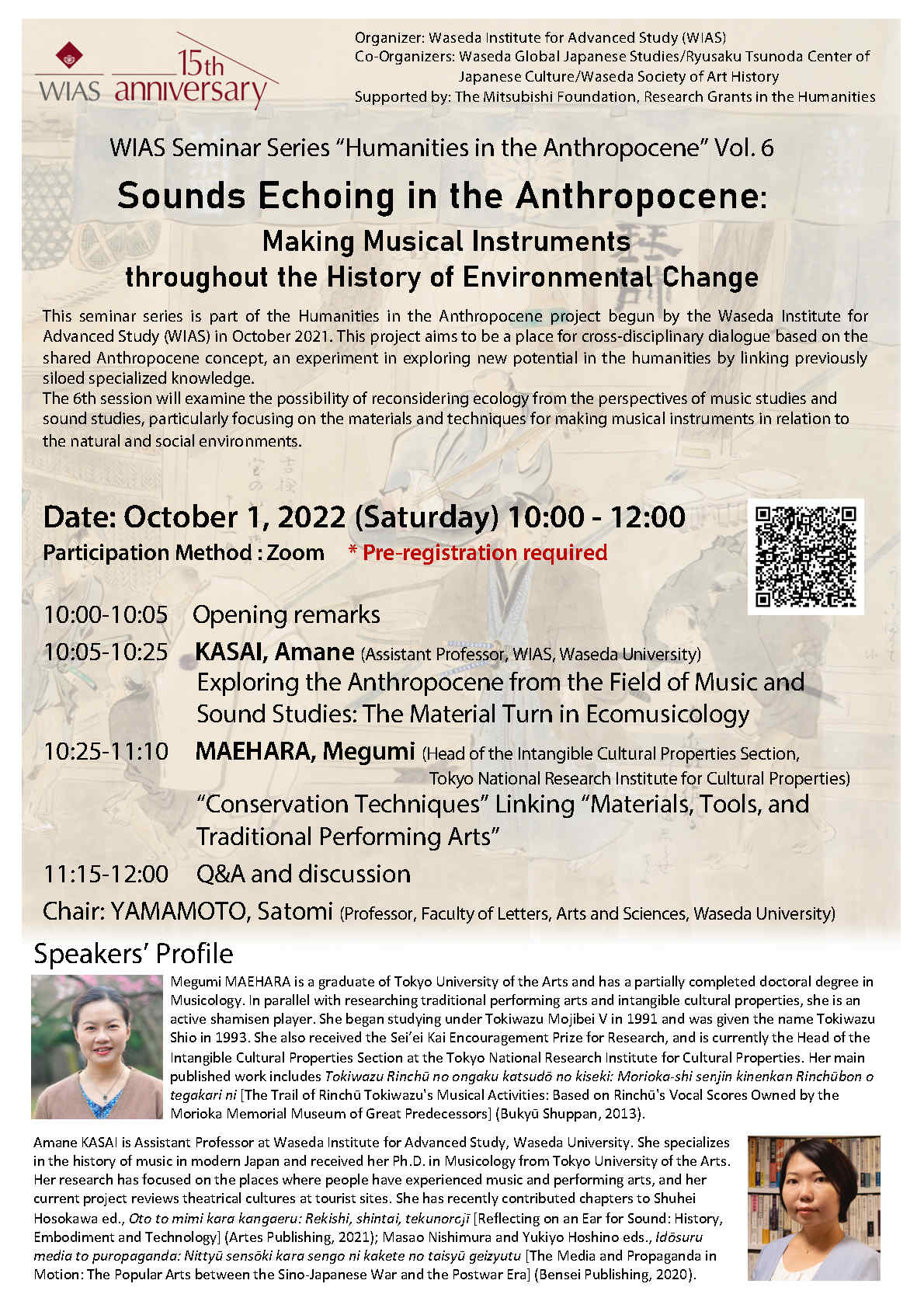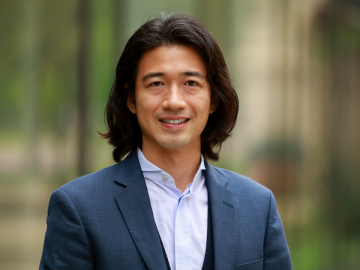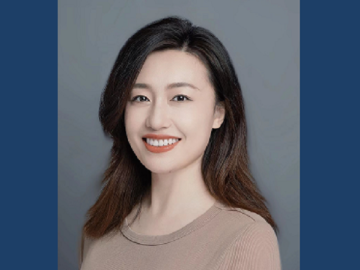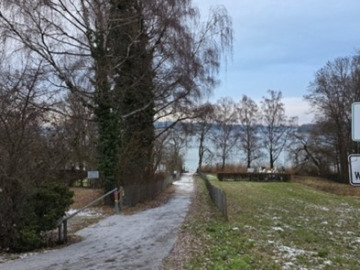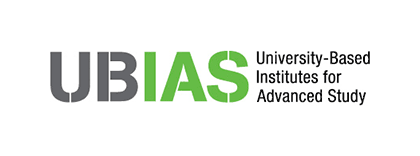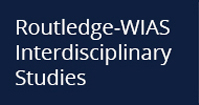WIAS Seminar Series “Humanities in the Anthropocene” Vol. 6
Open Lecture – “Sounds Echoing in the Anthropocene: Making Musical Instruments throughout the History of Environmental Change” (October 1)
Overview
This seminar series is part of the Humanities in the Anthropocene project begun by the Waseda Institute for Advanced Study (WIAS) in October 2021. This project aims to be a place for cross-disciplinary dialogue based on the shared Anthropocene concept, an experiment in exploring new potential in the humanities by linking previously siloed specialized knowledge.
The 6th session will examine the possibility of reconsidering ecology from the perspectives of music studies and sound studies, particularly focusing on the materials and techniques for making musical instruments in relation to the natural and social environments.
Speaker
MAEHARA, Megumi
Head of the Intangible Cultural Properties Section, Tokyo National Research Institute for Cultural Properties
Megumi MAEHARA is a graduate of Tokyo University of the Arts and has a partially completed doctoral degree in Musicology. In parallel with researching traditional performing arts and intangible cultural properties, she is an active shamisen player. She began studying under Tokiwazu Mojibei V in 1991 and was given the name Tokiwazu Shio in 1993. She also received the Sei’ei Kai Encouragement Prize for Research, and is currently the Head of the Intangible Cultural Properties Section at the Tokyo National Research Institute for Cultural Properties. Her main published work includes Tokiwazu Rinchū no ongaku katsudō no kiseki: Morioka-shi senjin kinenkan Rinchūbon o tegakari ni [The Trail of Rinchū Tokiwazu’s Musical Activities: Based on Rinchū’s Vocal Scores Owned by the Morioka Memorial Museum of Great Predecessors] (Bukyū Shuppan, 2013).
KASAI, Amane
Assistant Professor, Waseda institute for advanced studies, Waseda University
Amane KASAI is Assistant Professor at Waseda Institute for Advanced Study, Waseda University. She specializes in the history of music in modern Japan and received her Ph.D. in Musicology from Tokyo University of the Arts. Her research has focused on the places where people have experienced music and performing arts, and her current project reviews theatrical cultures at tourist sites. She has recently contributed chapters to Shuhei Hosokawa ed., Oto to mimi kara kangaeru: Rekishi, shintai, tekunorojī [Reflecting on an Ear for Sound: History, Embodiment and Technology] (Artes Publishing, 2021); Masao Nishimura and Yukiyo Hoshino eds., Idōsuru media to puropaganda: Nittyū sensōki kara sengo ni kakete no taisyū geizyutu [The Media and Propaganda in Motion: The Popular Arts between the Sino-Japanese War and the Postwar Era] (Bensei Publishing, 2020).
Date/Time
October 1, 2022 (Sat.), 10:00~12:00 (JST)
Location
Online meeting via Zoom (prior registration required)
Program
| 10:00~10:05 | Opening Remarks |
| 10:05~10:25 | Exploring the Anthropocene from the Field of Music and Sound Studies: The Material Turn in Ecomusicology (KASAI, Amane) |
| 10:25~11:10 | Lecturer “Conservation Techniques” Linking “Materials, Tools, and Traditional Performing Arts” (MAEHARA, Megumi) |
| 11:15~12:00 | Q&A and discussion |
Chair: Satomi Yamamoto (Professor, Faculty of Letters, Arts and Sciences, Waseda University)
Prospected Audience
Faculty members, Researchers, Graduate students
Organized by
Waseda Institute for Advanced Study (WIAS)
Co-Organizers
Waseda Global Japanese Studies
Ryusaku Tsunoda Center of Japanese Culture
Waseda Society of Art History
Supported by: The Mitsubishi Foundation, Research Grants in the Humanities
Registration
Prior registration is required. Please register from here.
Poster
